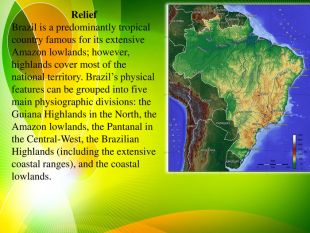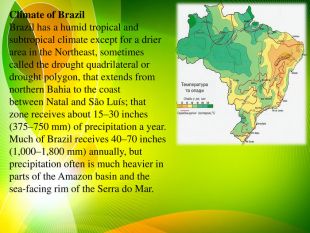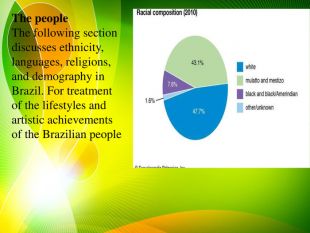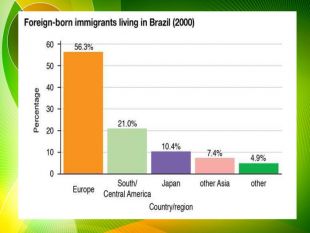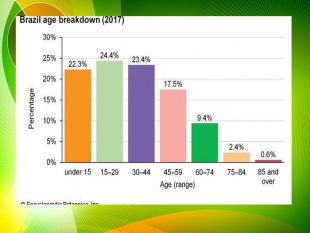Презентація 8 клас Brazil
Про матеріал
Презентація містить матеріал про найбільшу державу Латинської Америки Бразилію. Дана робота розроблена до Unit 4:Broaden Your Mind. Lesson 2 Geographical Outlook, page 202. 8 клас англійська мова О.Д.Карпюк Перегляд файлу
Зміст слайдів
ppt
До підручника
Англійська мова (8-й рік навчання) 8 клас (Карпюк О.Д.)
Оцінка розробки


Безкоштовний сертифікат
про публікацію авторської розробки
про публікацію авторської розробки
Щоб отримати, додайте розробку
Додати розробку



























